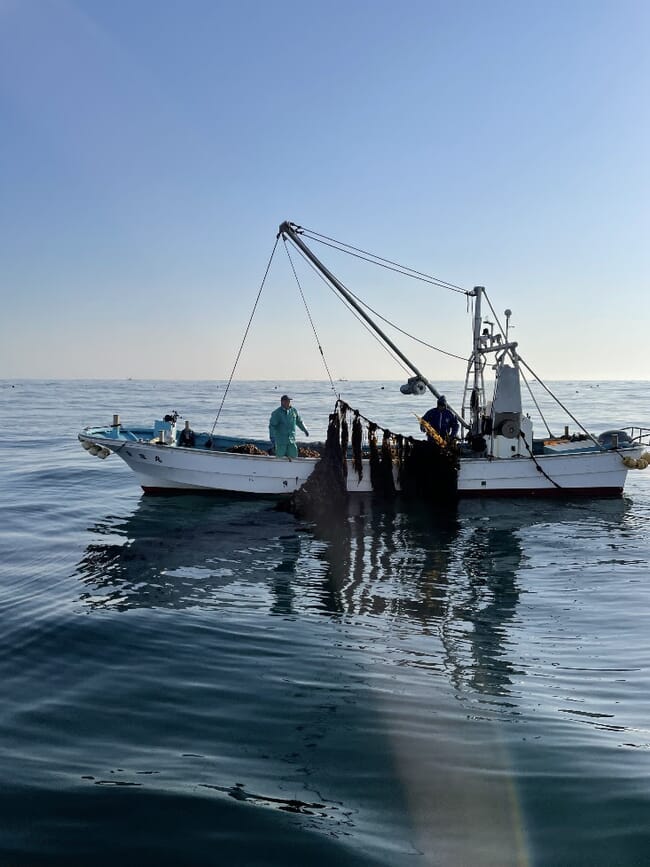
Jusanhama Gyokyo Youth Association in Japan, a cooperative of 19 seaweed farms producing Japanese kelp and wakame, is one of the first four groups of small-scale farmers to be ASC-certified
More than 1,000 small-scale farms have now earned Aquaculture Stewardship Council (ASC) certification for responsibly farmed seafood, through the organisation’s group certification scheme.
Four producer groups have earned ASC certification so far: the PT Central Proteina Prima Farm group in Indonesia, with 560 Pacific white shrimp (Litopenaeus vannamei) farms; Minh Phu Mangroves Shrimp Social Enterprise in Vietnam, a group of 450 tiger prawn (Penaeus monodon) farms; Jusanhama Gyokyo Youth Association in Japan, a cooperative of 19 seaweed farms producing Japanese kelp and wakame (Laminaria japonica and Undaria pinnatifida) and the Azuma-cho Fisheries Cooperative Association of seven Japanese amberjack (Seriola quinqueradiata) farms in Japan
Globally, a significant majority of farmed seafood comes from small- to medium-sized producers. It’s crucial that ASC certification be accessible to these smaller businesses around the world.
“To succeed in our mission of transforming the aquaculture industry towards environmental sustainability and social responsibility, small-scale farms must be able to demonstrate compliance with the ASC standards through accessible certification,” said Efrain Calderon, ASC’s programme assurance director, in a press release. “That’s exactly why ASC designed the group certification methodology, and we’re very pleased to see that it’s working.”
Group certification recognises groups of smaller producers that have joined together - for example, cooperatives and associations - which can jointly implement the requirements of the ASC standards. The group shares the costs, administrative function and other resources involved in that implementation and in the third-party audit that assesses whether they have fulfilled the standards.
“The demand for responsibly produced seafood around the world continues to increase, and ASC group certification opens the door for many thousands of smaller farms to access markets that would otherwise be out of reach for them,” explained Efrain Calderon.
Many consumers want to know they are supporting small farmers, and through ASC group certification, retail and foodservice companies now have the assurance they need that seafood from smaller producers is coming from verifiably responsible farms.
The ASC standards are not adjusted for groups to become certified, and every part of a group must meet the standards’ requirements to achieve ASC certification—meaning that the integrity of the ASC standard holds as strong for group certification as individual producer certification.
Each group appoints a management body that oversees the steps along the way toward certification, including educating the farmers, guiding them into compliance with the ASC standards, liaising with the auditor, and maintaining a centralised management system for the group. The manager serves as a reliable point of contact for buyers who want to source ASC certified product from the group.
ASC developed the group certification methodology over several years, guided by a technical working group of stakeholders from the industry, scientists and NGOs. The process involved public consultation and seven pilot groups in Asia and Europe.
Get a group certified
To learn more about organising a group for certification or sourcing from one, contact one of the ASC;s regional teams directly.



